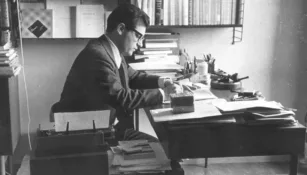CONTRIBUTI / 7 / di Matteo Angelo Mollisi
The aim of this paper is to try to suggest some political potentialities of the Heideggerian concept of Befindlichkeit, as it is presented in his main work Being and time. Our thesis is that these potentialities can be found out through the analysis of Jan Patočka’s thought, which has to be read at the same time as continuous with and independent of Heidegger’s one. In particular, we’ll try to suggest that wide divergences in political praxis between the two philosophers rest on a ‘phenomenological basis’ – clearly evident at the beginning of Patočka’s work Heretical Essays in the Philosophy of History, and fully developed in his phenomenological papers – in which Heidegger’s Befindlichkeit and other existentiell categories are rethought by Patočka in order to deepen their factual and intersubjective meaning, and so to reinterpret Heidegger’s thought in a more communitarian and practical dimension.

